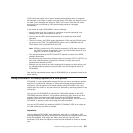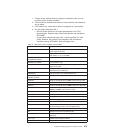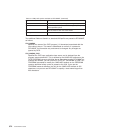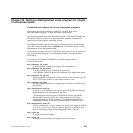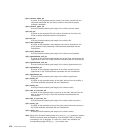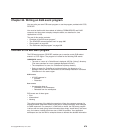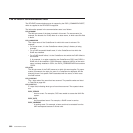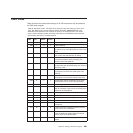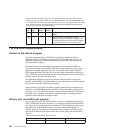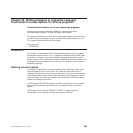
Chapter 24. Writing an EJB event program
You can write your own EJB event program or use the program provided with CICS,
DFHEJEP.
You must be familiar with the methods of defining CORBASERVER and DJAR
resources and know how to deploy enterprise beans, as described in Java
Applications in CICS.
The rest of this section contains:
v “Overview of the EJB event program”
v “The DFHEJEP communications area” on page 680
v “Event codes” on page 681
v “The EJB event sample program” on page 682
Overview of the EJB event program
The EJB event program, DFHEJEP, enables you to monitor certain EJB-related
events in a CICS region. The program is invoked for the following EJB events:
CORBASERVER events
v The start of a scan of a CorbaServer’s deployed JAR file (“pickup”) directory.
(The scan searches for new or updated deployed JAR files.)
v The completion of a scan of a CorbaServer’s pickup directory.
v During a scan of a CorbaServer’s pickup directory, the discovery of a
deployed JAR file with the same name as one already installed in a different
CorbaServer in the same region.
DJAR events
v A DJAR resource is:
– Installed
– Discarded
Bean events
v An enterprise bean is:
– Published to the namespace
– Retracted from the namespace
EJB events are of three types:
v Error
v Informational
v Warning
The primary purpose of the default program is to inform the resource manager for
enterprise beans (otherwise known as the RM for enterprise beans) about changes
to DJAR resources. For example, if a DJAR fails to install, the EJB event program
is driven with an event giving more information than simply “install failed”; the event
may, for instance, indicate that there was a UNIX file problem. Your application
developers can use the RM for enterprise beans to browse this detailed information.
© Copyright IBM Corp. 1977, 2011 679



